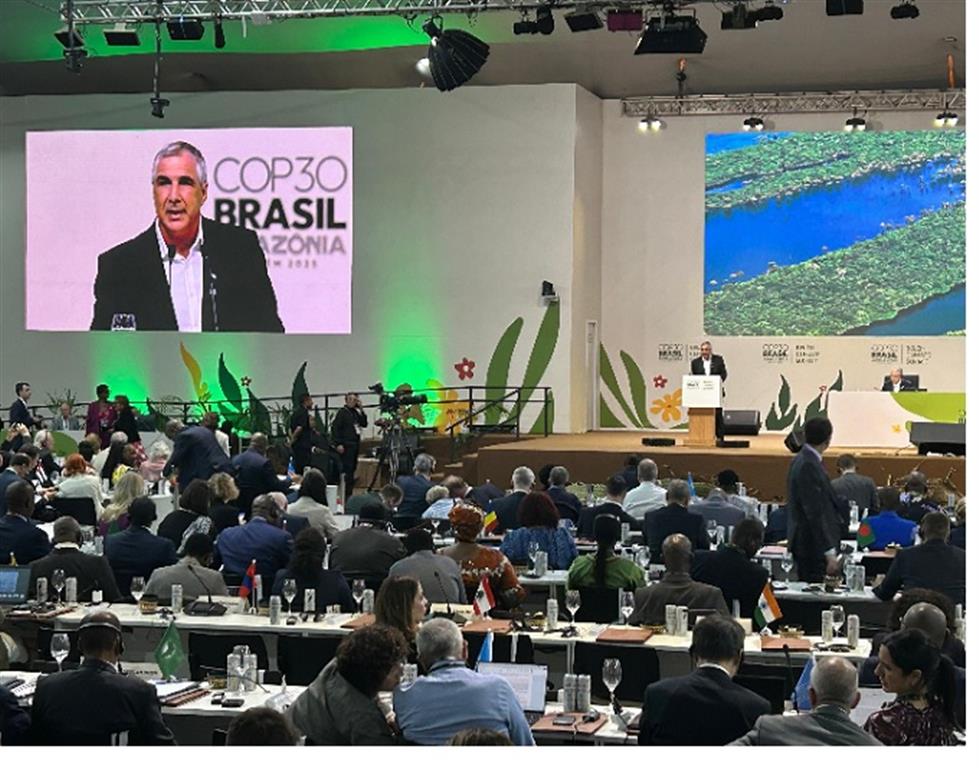At the 30th Conference of the Parties (COP30) of the United Nations on Climate Change, taking place in Belém, Brazil, Cuban Deputy Prime Minister Eduardo Martínez, representing his country, denounced the US financial blockade against the island as the greatest obstacle to its climate action and development.
“The greatest challenge to implementing our national contributions is the financial blockade imposed by the United States government against Cuba, including actions against the willingness of others to cooperate with our country,” stated the Cuban representative, recalling that this policy has been overwhelmingly condemned by the United Nations General Assembly.
Despite this impediment, Cuba reaffirmed its commitment to the Paris Agreement and multilateral processes, highlighting the recent presentation of its Transparency Report and the update of its Nationally Determined Contribution (NDC).
Eduardo Martínez contextualized the climate crisis within an unfavorable global scenario, noting that the root causes of the crisis persist, driven by unsustainable consumption patterns, inequality, and the privileges of elites with roots in a colonial past.
Along the same lines, he criticized the weakening of the multilateral system and the lack of international support for developing nations to overcome poverty and inequality. In this regard, Cuba condemned the lack of commitment from developed countries, particularly the United States, and their increased use of weapons and aircraft, while the least emitting countries suffer the consequences of non-compliance with the Paris Agreement.
Eduardo Martinez recalled Fidel Castro’s speech at the Environment and Development Conference:
“Let selfishness cease, let hegemonism cease, let insensitivity, irresponsibility, and deceit cease. Tomorrow will be too late to do what we should have done long ago.”
The Cuban delegation urged the international community to make rapid changes to the international order and financial institutions. The Deputy Prime Minister asserted that these institutions are reproducing outdated models that run counter to cooperation and the needs of the present.
The Caribbean nation called for immediate action through three fundamental pillars: expanding financing to mitigate the vulnerability of small island states, abandoning protectionist and unilateral practices in international relations, and mobilizing the necessary political will to confront and reduce the inequalities that persist today.
Martínez concluded his remarks by quoting Fidel Castro’s historic warning at the 1992 Rio Summit:
“We must put an end to greed, complacency, and deception. Tomorrow will be too late to do what we should have done long ago.”
IMAGE CREDIT: Eduardo Martínez contextualized the climate crisis within an unfavorable global scenario, noting that the root causes of the crisis persist, driven by unsustainable consumption patterns. Photo: @EmbaCubaBrasil.
[ SOURCE: teleSUR ]

